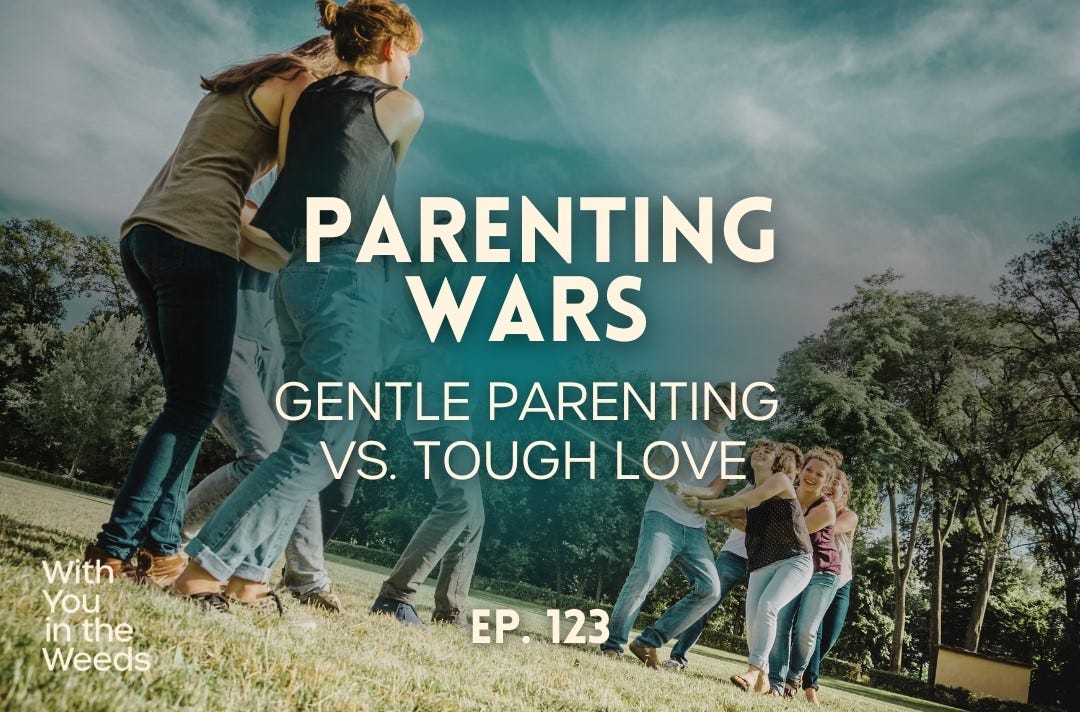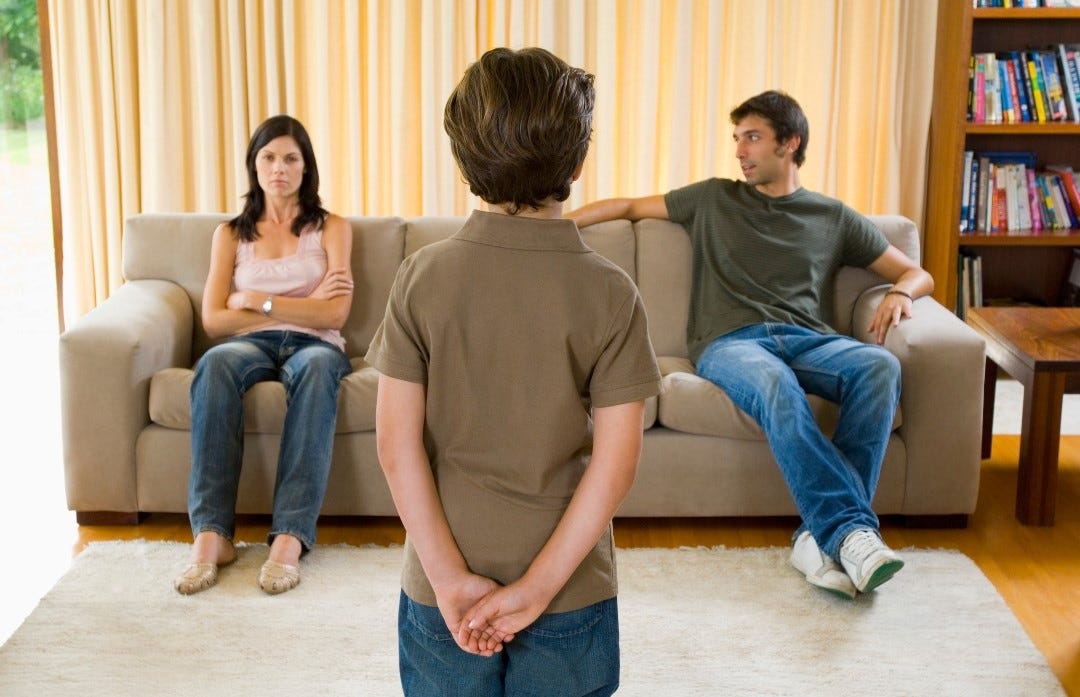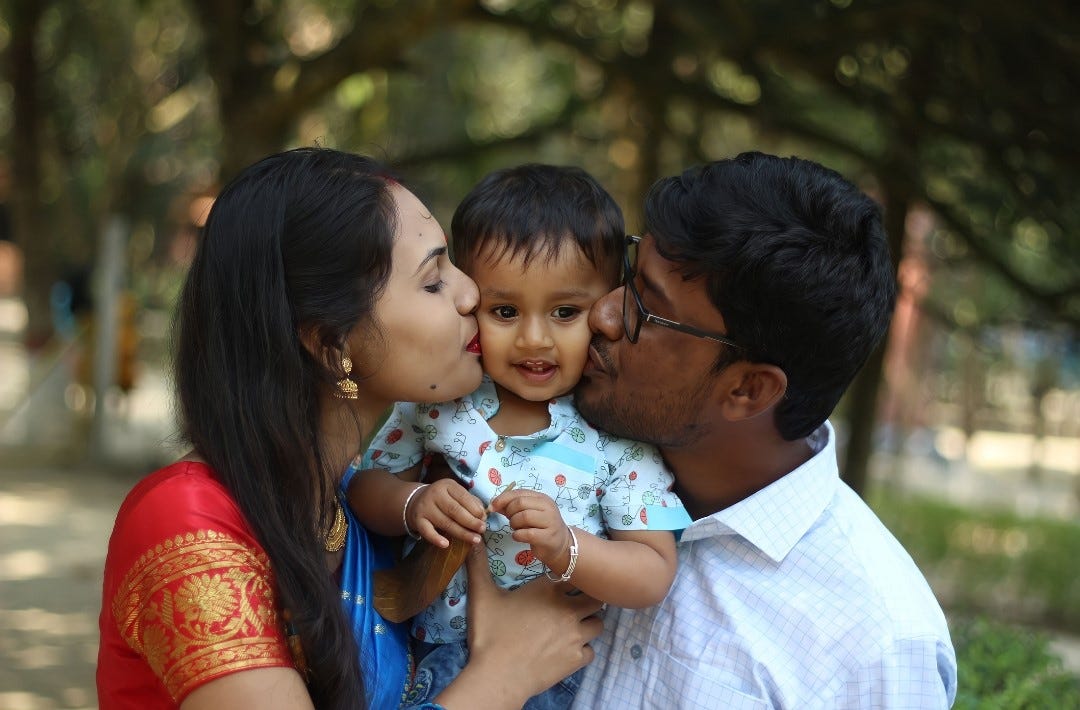Parenting Wars: “Gentle Parenting” vs. “Tough Love”
What is the best way to raise happy, healthy kids?
Parents today are tired and confused and frustrated. Even with the best of intentions, they soon discover that parenting is not hard, it’s impossible. You will fail your kids from time to time. There are no perfect parents!
What makes parenting even harder are the differing opinions that many people hold about the “right” way to parent. Go to a bookstore and browse parenting titles or visit an online parenting forum and almost immediately you’ll see some people advocating “gentle parenting” and others who vow that “tough love” works every time.
In this episode, the first in our new series, Parenting in the Weeds, John, Lynn, and Austin sit down to discuss differing approaches to raising kids, how to evaluate outcomes, and what to do when you are brokenhearted and crushed by parenting.
They’re going to cover a lot of helpful info:
The difference between “gentle parenting” and “tough love”
The best arguments for each type – and downsides of each
A new framework for raising healthy, happy kids
4 specific takeaways for parents
Our hope is that after you listen to this episode, you will feel hopeful, validated, and encouraged – and maybe challenged where and how you need it.
Parenting Wars Episode Highlights
Defining “Gentle Parenting” v. “Tough Love”
First, we want to define these terms to make sure we’re all on the same page. We’re using broad brushstrokes here to paint a vivid picture:
Gentle Parenting: Picture a child in a store throwing a fit or tantrum. Parents are holding back and not attempting to discipline or redirect: “Don’t get in her way, she just needs to get her feelings out.”
Tough Love: A parent is strictly enforcing rules without regard to the child’s feelings: “Don’t cry or I’ll give you something to cry about. Your dad’s going to come home and deal with you later”.
‘Upsides’ of Each Approach
Gentle Parenting: Kids have feelings and emotional needs and those are important, and we need to attune to them. To develop secure attachment, you’re going to need to enter your child’s emotional world and connect with them.
Tough Love: Children need to understand boundaries, there’s a structure of authority that they need to learn to live under, and they need to learn self-control, patience, and respect.
‘Downsides’ of Each Approach
These are some unintended consequences or results that are going to happen (regardless of your intent) if you use either of these approaches:
Gentle Parenting: Your child may develop a sense of entitlement and believe that the world revolves around them. Their power and control is maintained at the expense of others. It’s a parenting misconception to “prepare the road for the child” instead of “prepare the child for the road”.
It’s a parenting misconception to “prepare the road for the child” instead of “prepare the child for the road”.
Tough Love: You may end up hurting your kids emotionally, spiritually, mentally, physically. Harsh punishments will backfire and cause them to pull away from you. They will feel unseen, unsafe, and resentful. The moment they are able to get out of the house and away from you, they will.
A New Framework
Instead of choosing between “Gentle Parenting” or “Tough Love”, we think there is a better framework to view parenting through. Rather than “either/or”, we see parenting choices on spectrum:
One side of the spectrum is permissive parenting - letting kids do whatever they want, whenever they want. This “no boundaries or limits” approach can seem easier in the short term. No difficult conversations, no drama or pushback!
On the other side of the spectrum is authoritarian parenting. This approach is usually harsh and legalistic, with many rules to follow and very little mercy shown if rules are broken. Children may outwardly comply simply to avoid punishment.
The middle of the spectrum is what we call real parenting. This approach includes both love and limits. The “love” is the warm connection between you and your child. You can demonstrate that by spending time with them, encouraging their interests, and working to understand them better. The “limits” are the rules that provide structure and guidance to ensure their safety.
This approach includes clear expectations for children’s behavior, but it starts with a warm, supportive, encouraging relationship. This is the evidence-based parenting approach we recommend!
4 Takeaways to Fine-tune Your Parenting
Operating under the idea that the best approach to parenting requires love AND limits, here are some questions and concepts you can use to evaluate yourself:
Where do you land on the parenting spectrum? Do you tend to be overly permissive? Or do you find yourself focusing on behavior compliance?
What does your child need? Every child is unique. Be willing to change and adapt your approach in a way that respects your child’s uniqueness. Maybe you need to add more love, or maybe you need to add more limits.
If you realize that you have defaulted to authoritarian parenting, be ready to:
Ask about the impact you’re having on your kids
Listen empathetically to their responses and apologize for any negative impact
Acknowledge your shortcomings as a parent
If there are times when you default to permissive parenting, be ready to:
Set boundaries where there weren’t any
Share what changes you’re going to make with your kids moving forward and why
Tolerate distress that may result as you move from permissive to real parenting
When you can self-reflect on your parenting approach, and ask your kids for feedback about the impact you’ve had on them, you may be surprised at what you learn about yourself. As you open yourself up to greater awareness of how your parenting approach needs refinement, you can continue to provide your kids with love, encouragement, safety, and security. Remember, real parenting isn’t about perfection, it’s about learning to walk the tightrope between love and limits, which may be the life’s most difficult balancing act.





Being a caring, competent, loving and knowledgeable parent [about factual child-development science] should matter most when deciding to procreate. Therefore, parental failure seems to occur as soon as the solid decision is made to have a child even though the parent-in-waiting cannot be truly caring, competent, loving and knowledgeable.
In Childhood Disrupted the author writes that even “well-meaning and loving parents can unintentionally do harm to a child if they are not well informed about human development” (pg.24). While liberal-democratic society cannot prevent anyone from bearing children, not even the plainly incompetent and reckless procreator, it can educate all young people for the most important job ever, even those intending to remain childless.
If nothing else, such child-development curriculum could offer students an idea/clue as to whether they’re emotionally suited for the immense responsibility and strains of parenthood. Given what is at stake, should they not at least be equipped with such valuable science-based knowledge?
In the meantime, too many people will procreate regardless of not being sufficiently knowledgeable of child development science to parent in a psychologically functional/healthy manner. They seem to perceive thus treat human procreative ‘rights’ as though they (potential parents) will somehow, in blind anticipation, be innately inclined to sufficiently understand and appropriately nurture their children’s naturally developing minds and needs.
A mentally as well as a physically sound future should be every child’s foremost fundamental right — along with air, water, food and shelter — especially considering the very troubled world into which they never asked to enter; a world in which National Child Abuse Prevention Month [every April in the U.S.] clearly needs to run 365 days of the year. Instead, some people still hold a misplaced yet strong sense of entitlement when it comes to misperceiving children largely as obedient property.
.
"I remember leaving the hospital thinking, ‘Wait, are they going to let me just walk off with him? I don’t know beans about babies! I don’t have a license to do this. We’re just amateurs’.”
—Anne Tyler, Breathing Lessons
.
“The way a society functions is a reflection of the childrearing practices of that society. Today we reap what we have sown. Despite the well-documented critical nature of early life experiences, we dedicate few resources to this time of life. We do not educate our children about child development, parenting, or the impact of neglect and trauma on children.”
—Dr. Bruce D. Perry, Ph.D. & Dr. John Marcellus